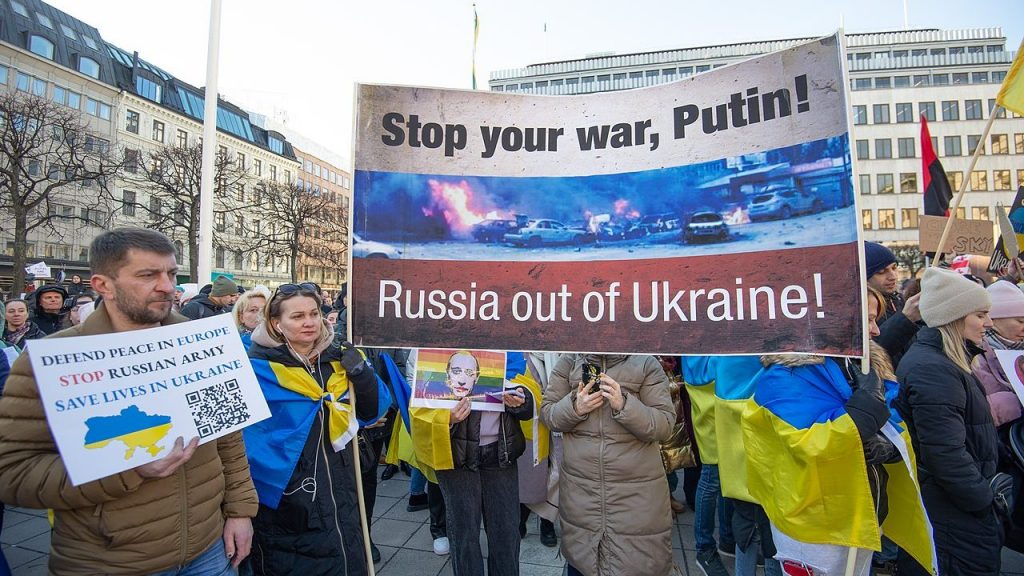How Russia’s latest annexation attempt affects the war in Ukraine
The claimed referenda vote lacks legitimacy, occurring under coercive conditions, with many residents displaced.

Demonstration against Russian invasion of Ukraine in Stokholm, February 2022.
Russian president Vladimir Putin has declared portions of eastern and southern Ukraine as part of Russia. The announcement follows sham referenda held in the occupied regions and represents the latest in a series of escalations as Russia against Ukraine.
Following the formal annexation, Ukraine President Volodymyr Zelensky is requesting accelerated membership into NATO. He previously warned that Ukraine will not negotiate with Russia as long as President Vladimir Putin is in power.
“It gets into a bigger question of what does this mean to be Russian? What does it mean to be Ukrainian?” — Aaron Retish, history professor
Listen: Why Americans should care about the war in Ukraine.
Guest
Aaron Retish is a history professor at Wayne State University with a specialization in Soviet and Russian history. He says the four districts illegally annexed by Russia have always been part of the Ukrainian republic, placing the decision at the forefront of the war.
“It gets into a bigger question of what does this mean to be Russian? What does it mean to be Ukrainian?” says Retish. “Because there are a lot of people, even Zelensky…whose first language is Russian living in Ukraine. And yet they identify as Ukrainians.”
“So, when Putin claims this land as Russian, or says that he is, he is annexing these lands because to protect Russians from genocide,” Retish continues. “This is his own ideology talking about both Russian nationalism and denouncing or kind of, pushing aside Ukrainian views of national selfhood.”
Photo credit: Frankie Fouganthin/Wiki Commons.
Trusted, accurate, up-to-date.
WDET strives to make our journalism accessible to everyone. As a public media institution, we maintain our journalistic integrity through independent support from readers like you. If you value WDET as your source of news, music and conversation, please make a gift today.
